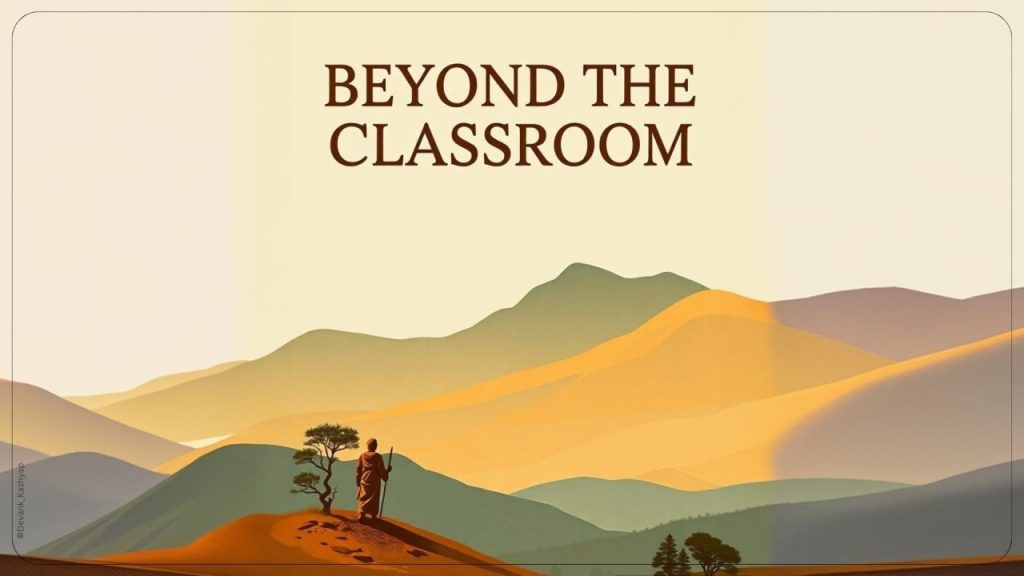JAKARTA, studyinca.ac.id – In an educational landscape that increasingly values experiential learning, beyond the classroom experiences, such as creative competitions, play a crucial role in enhancing student engagement. These competitions, whether in the arts, sciences, or technology, provide students with opportunities to apply their knowledge and skills in real-world contexts, fostering a deeper connection to their education. This article explores how creative competitions impact student engagement, the benefits they offer, and effective ways to implement them in educational settings.
The Role of Creative Competitions in Student Engagement

1. Encouraging Active Participation
Creative competitions encourage students to move beyond passive learning. Instead of merely absorbing information, students actively participate in the creative process, which can lead to a more profound understanding of the subject matter. This active involvement helps students retain information better and fosters a sense of ownership over their learning.
2. Stimulating Critical Thinking and Problem-Solving
Competitions often present challenges that require students to think critically and solve problems creatively. This process not only enhances their analytical skills but also encourages them to explore innovative solutions, preparing them for complex real-world scenarios.
3. Fostering Collaboration and Teamwork
Many creative competitions require students to work in teams, promoting collaboration and interpersonal skills. Through teamwork, students learn to communicate effectively, negotiate ideas, and leverage each other’s strengths, enhancing their overall educational experience.
4. Building Confidence and Resilience
Participating in competitions allows students to showcase their talents and receive feedback. This experience builds confidence as they learn to present their work publicly and handle both success and failure. The resilience developed through competition prepares students for future challenges in academics and life.
5. Connecting Learning to Real-World Applications
Creative competitions bridge the gap between theoretical knowledge and practical application. By engaging in projects that reflect real-world issues or industry standards, students see the relevance of their education, making learning more meaningful and impactful.
Benefits of Creative Competitions
1. Skill Development
Creative competitions help students develop a variety of skills, including:
- Creativity: Encouraging original thought and innovative approaches.
- Communication: Enhancing verbal and written communication skills through presentations and discussions.
- Time Management: Teaching students to manage their time effectively while balancing competition preparation and academic responsibilities.
- Technical Skills: Providing opportunities to learn and apply specific tools and technologies relevant to their field of interest.
2. Networking Opportunities
Competitions often bring together students from diverse backgrounds, creating networking opportunities with peers, educators, and industry professionals. These connections can lead to mentorship, internships, and career opportunities, further enhancing students’ educational journeys.
3. Recognition and Career Advancement
Participation and success in creative competitions can enhance students’ resumes and portfolios. Recognition in these events can lead to scholarships, internships, and job offers, giving students a competitive edge in their future careers.
4. Enhanced School Spirit and Community
Creative competitions can foster a sense of community and school spirit. When students participate in events that highlight their talents, it creates a positive atmosphere that encourages involvement and camaraderie among students, faculty, and the broader school community.
Implementing Creative Competitions Effectively
1. Align Competitions with Curriculum
To maximize engagement, schools should choose competitions that align with the curriculum and students’ interests. This relevance ensures that students are motivated to participate and can see the connection between their classroom learning and the competition.
Action Steps:
- Research and identify competitions that resonate with students’ academic and personal interests.
- Involve students in the selection process to gauge their preferences.
2. Provide Resources and Support
To enhance student participation and success, schools should offer resources and support for students preparing for competitions. This support can include access to materials, workshops, mentorship, and guidance from faculty.
Action Steps:
- Organize training sessions or workshops to help students prepare for competition requirements.
- Create a mentorship program where experienced students or faculty can guide participants.
3. Promote a Culture of Creativity
Encouraging a culture of creativity within the school can enhance student engagement in competitions. Schools should celebrate creativity not only in competitions but also in everyday learning experiences.
Action Steps:
- Showcase student projects and achievements through exhibitions or assemblies.
- Incorporate creative thinking and problem-solving activities into the curriculum.
4. Encourage Team Participation
While individual competitions are valuable, team-based competitions can enhance collaboration and engagement. Encourage students to form teams, emphasizing the importance of teamwork and collective problem-solving.
Action Steps:
- Organize team-building activities to strengthen relationships among team members.
- Provide opportunities for teams to practice and refine their projects before the competition.
5. Celebrate Participation and Achievements
Recognizing all participants, not just winners, fosters a positive environment and encourages future involvement. Celebrating achievements can motivate students to continue engaging in creative pursuits.
Action Steps:
- Hold award ceremonies or recognition events to honor all participants.
- Share success stories and highlights through school newsletters or social media.
Conclusion
Creative competitions serve as a vital tool for enhancing student engagement beyond the classroom. By fostering active participation, critical thinking, collaboration, and real-world application, these competitions enrich the educational experience and prepare students for future challenges.
To fully realize the benefits of creative competitions, educational institutions must implement effective strategies that promote participation, provide support, and celebrate achievements. By doing so, schools can cultivate a vibrant culture of creativity and engagement that empowers students to thrive both academically and personally, ultimately leading to a more fulfilling educational journey.
Improve Your Abilities: Explore Our content on Knowledge
Take a Look at Our Latest Article on Problem-Solving Skills!

